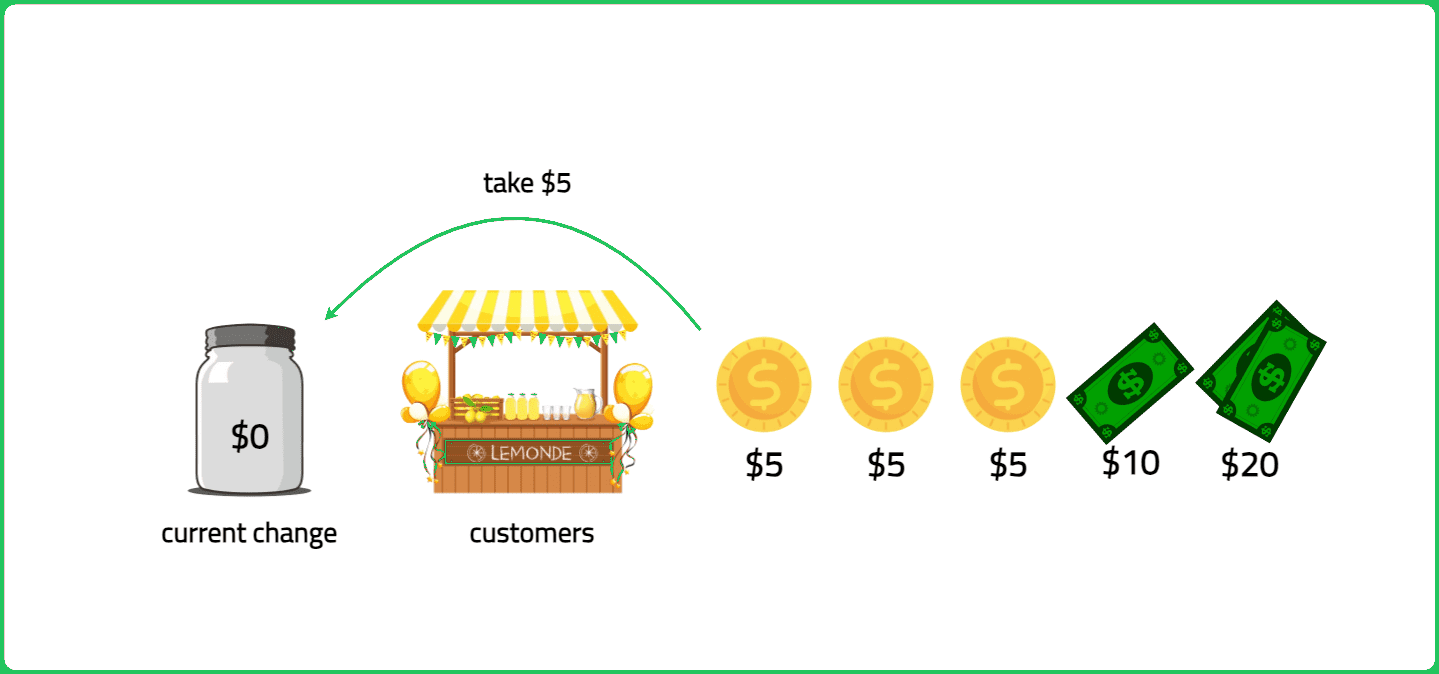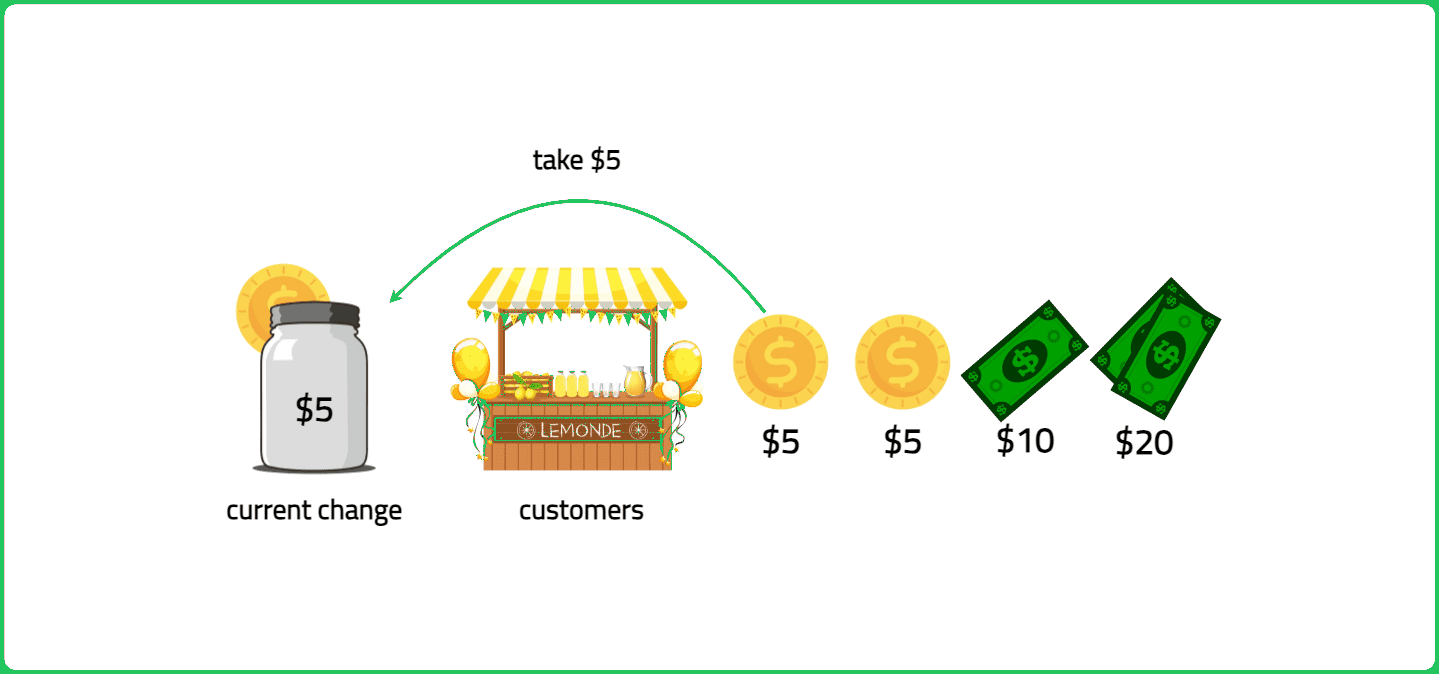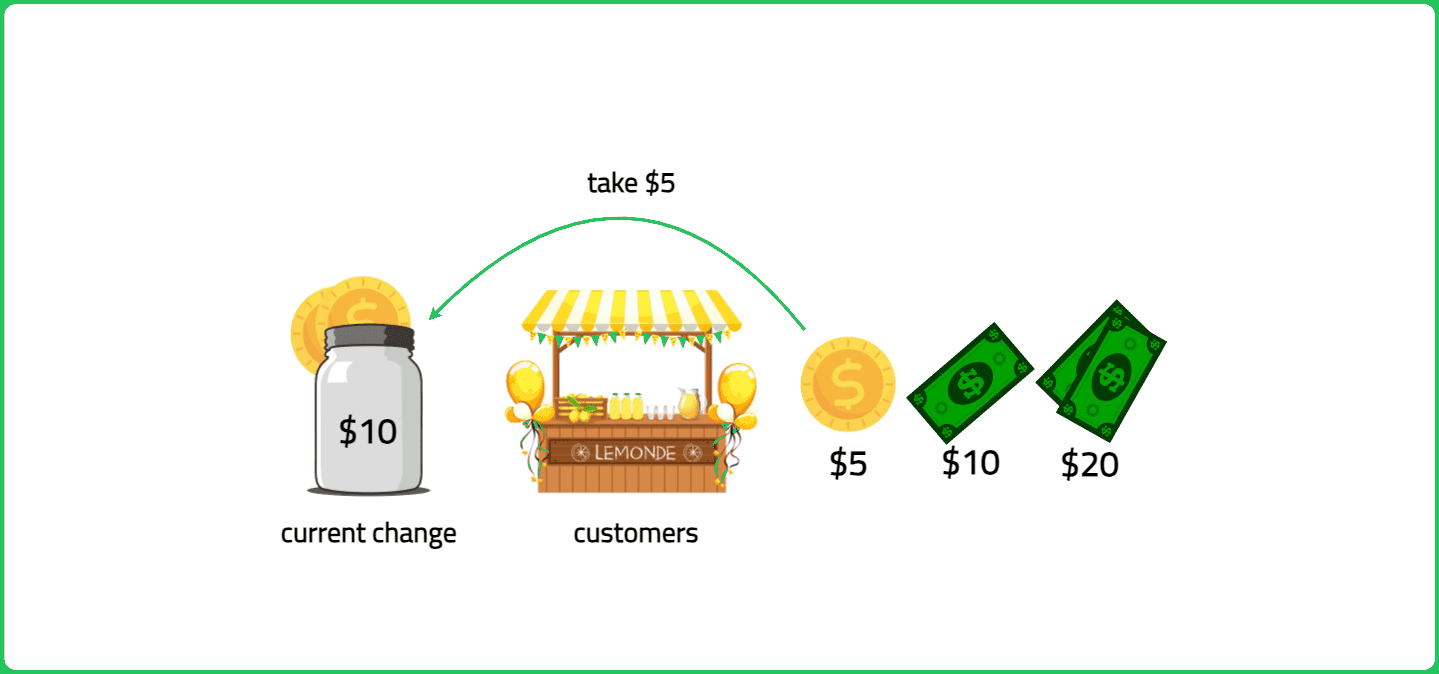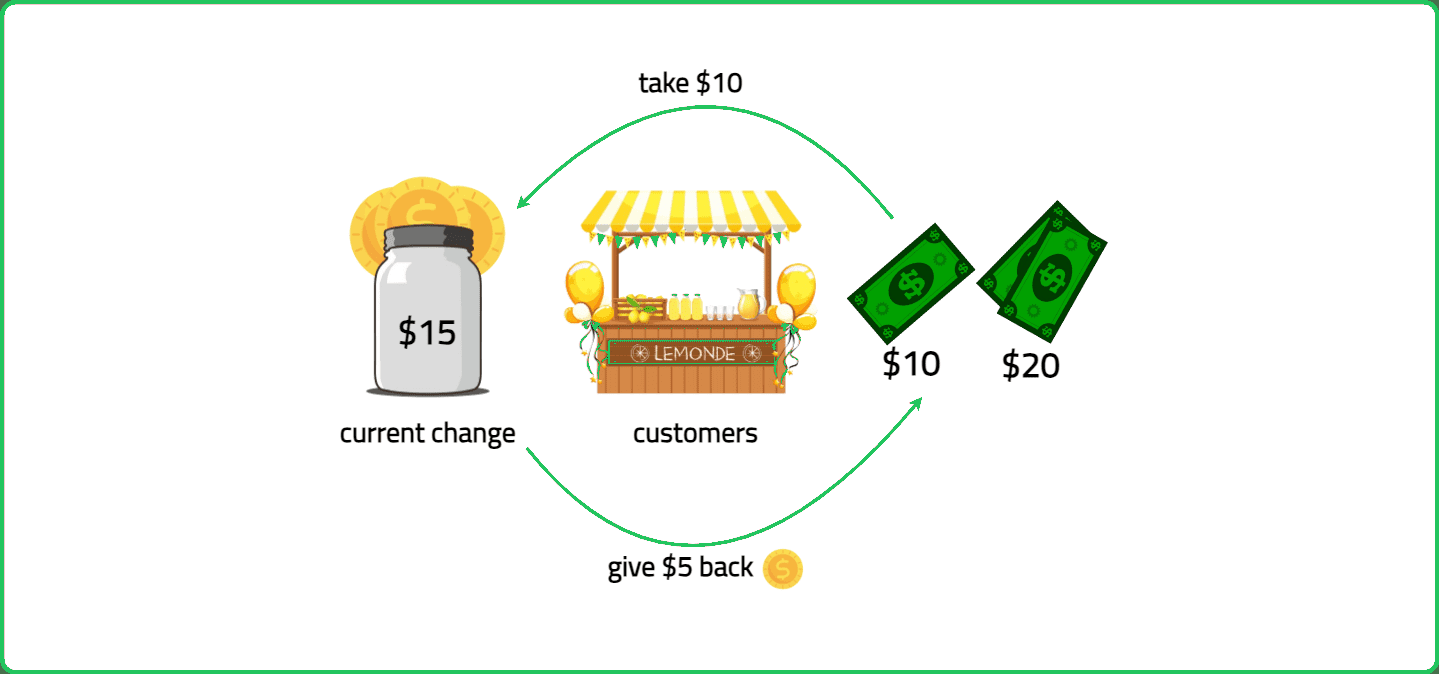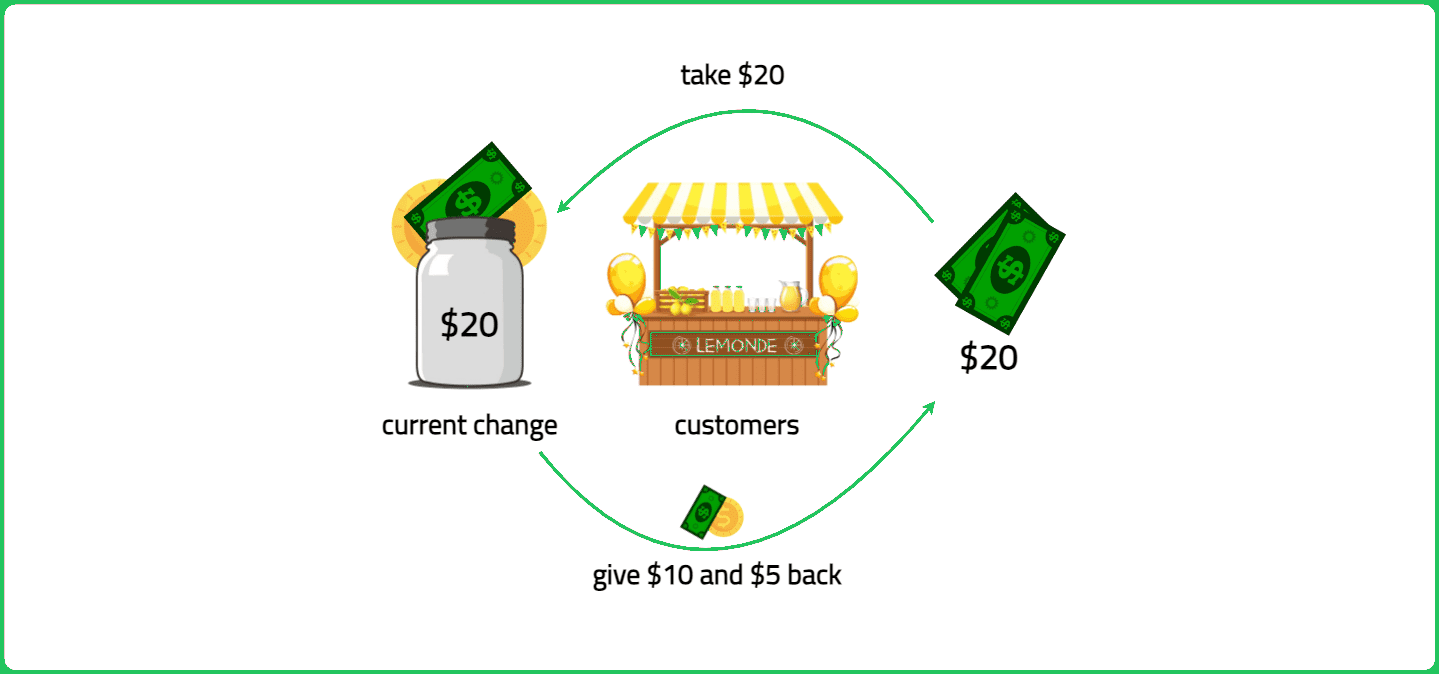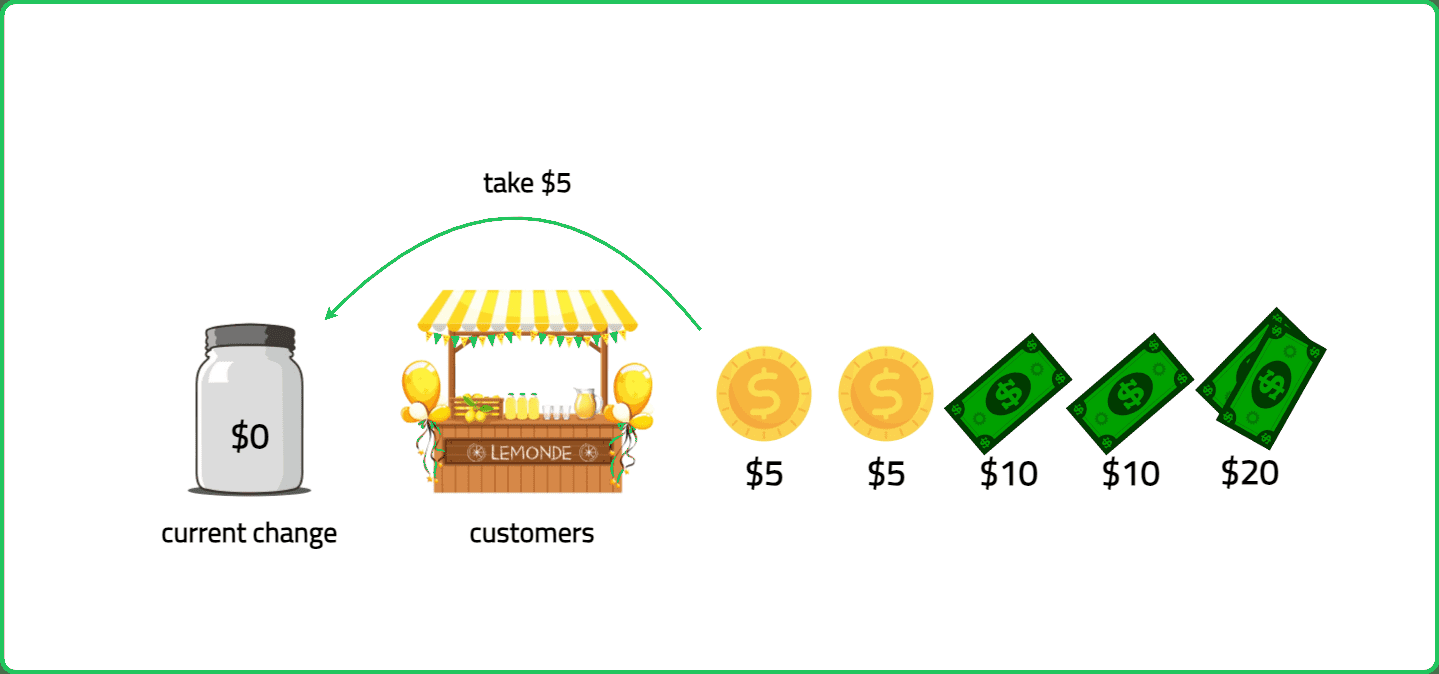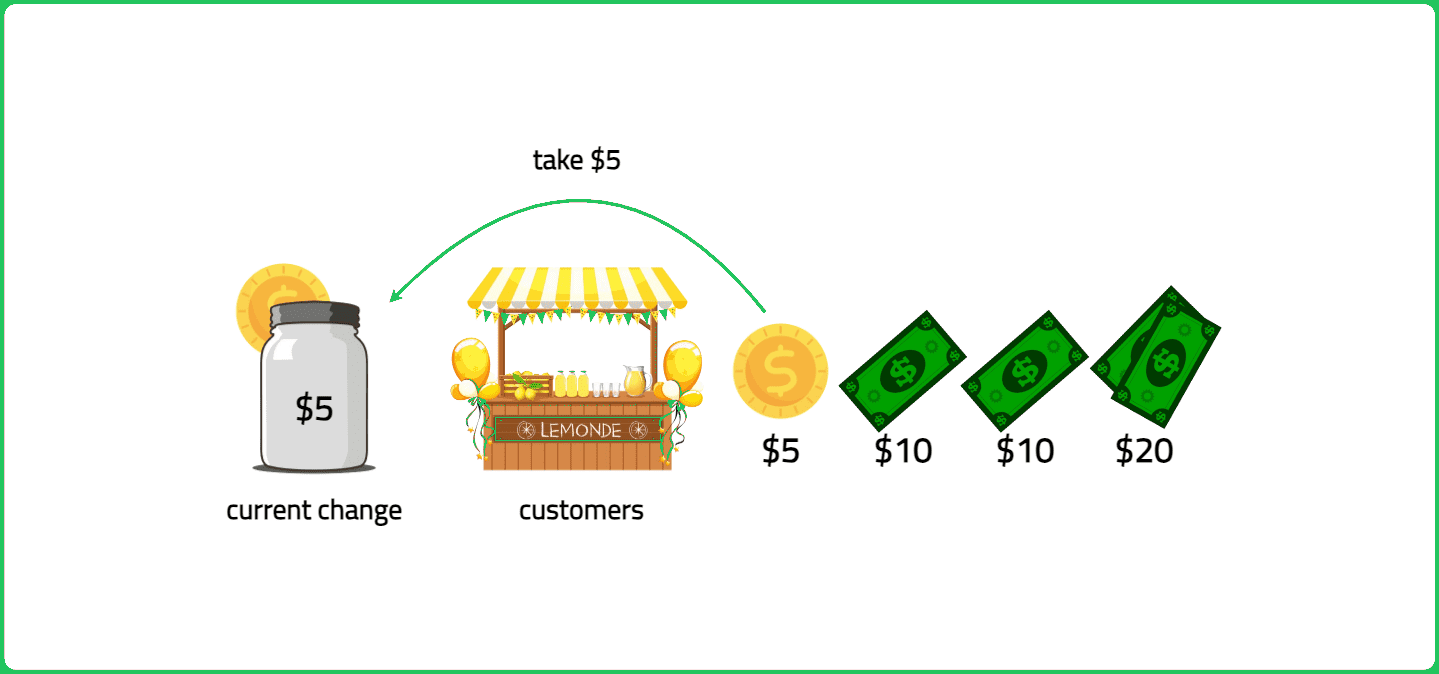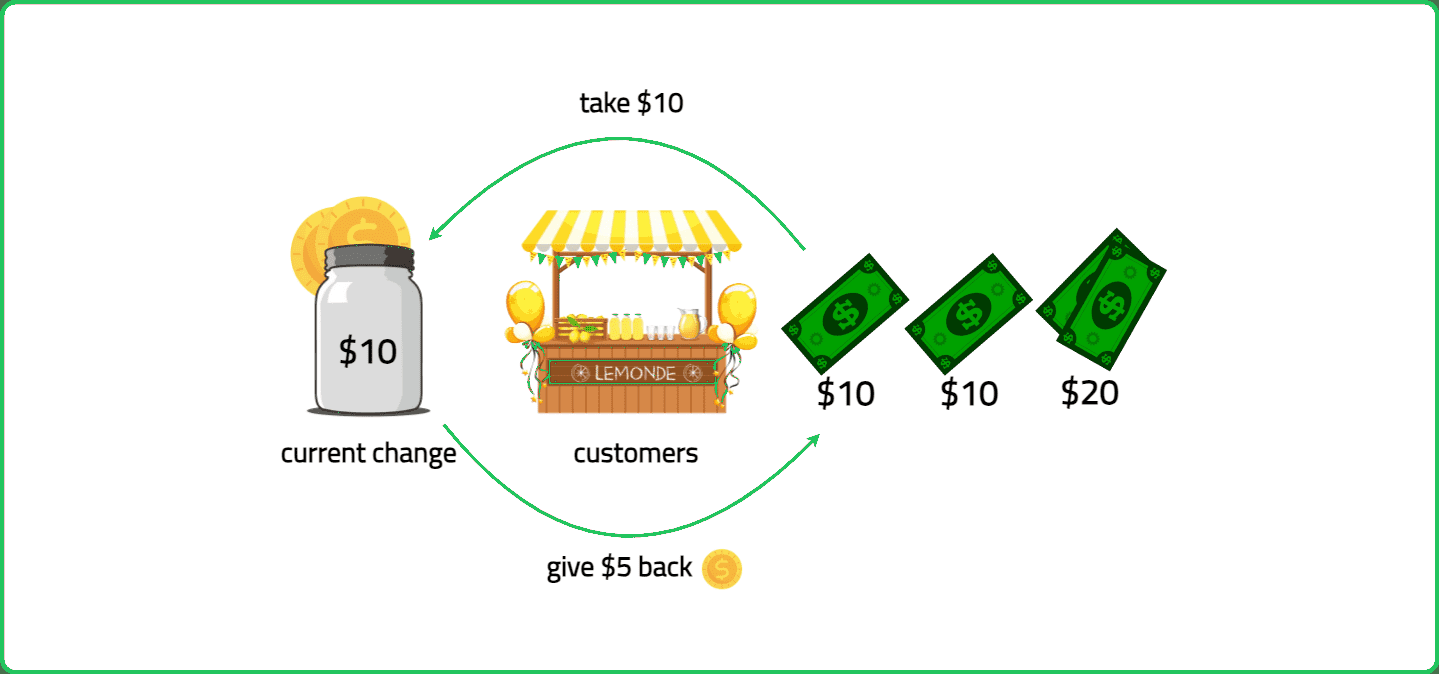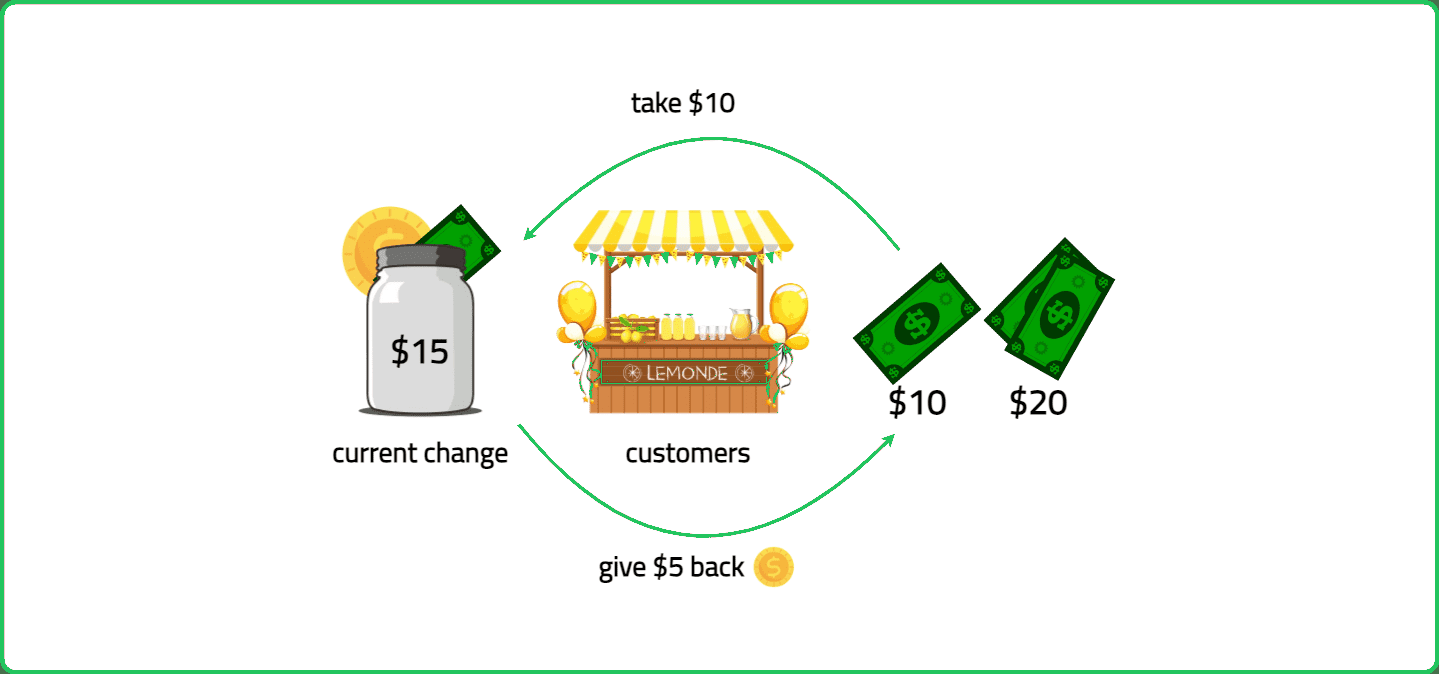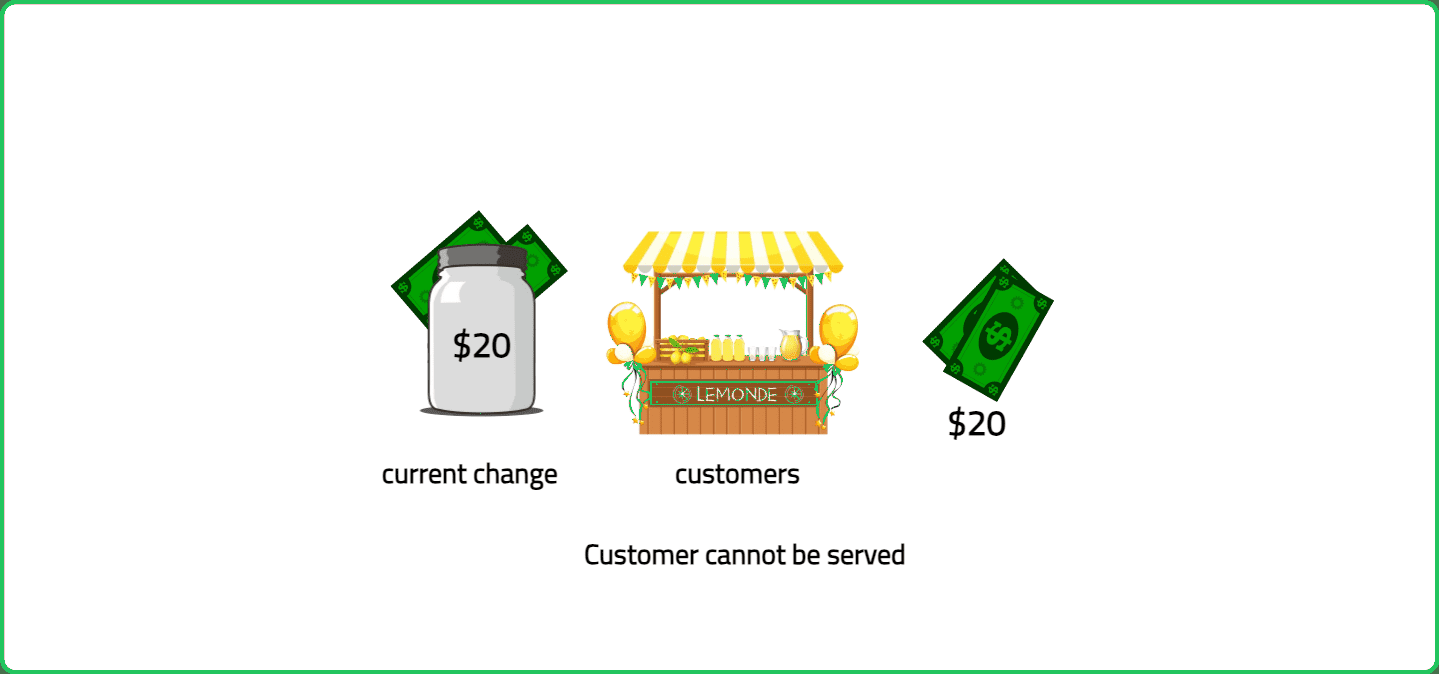12345678910111213141516171819202122232425262728293031323334353637383940414243444546474849505152535455565758596061626364656667686970717273747576777879808182838485868788899091
#include <bits/stdc++.h>
using namespace std;
class Solution {
public:
/* Function to find whether each customer can
be provided with correct change */
bool lemonadeChange(vector<int>& bills) {
// Counter for $5
int five = 0;
// Counter for $10
int ten = 0;
// Iterate through each customer's bill
for (int i = 0; i < bills.size(); i++) {
/* If the customer's
bill is $5 */
if (bills[i] == 5) {
// Increment $5
five++;
}
/* If the customer's
bill is $10 */
else if (bills[i] == 10) {
/* Check if there are $5
bills available to give change */
if (five) {
// Use one $5
five--;
// Receive one $10
ten++;
}
/* If no $5 bill
available, return false */
else return false;
}
/* If the customer's
bill is $20 */
else {
/* Check if there are both
$5 and $10 bills
available to give change */
if (five && ten) {
// Use one $5
five--;
// Use one $10
ten--;
}
/* If there are not enough $10 bills,
check if there are at least
three $5 bills available */
else if (five >= 3) {
// Use three $5 bills
five -= 3;
}
/* If unable to give
change, return false */
else return false;
}
}
// Return true
return true;
}
};
int main() {
vector<int> bills = {5, 5, 5, 10, 20};
cout << "Queues of customers: ";
for (int bill : bills) {
cout << bill << " ";
}
cout << endl;
Solution solution;
bool ans = solution.lemonadeChange(bills);
if (ans)
cout << "It is possible to provide change for all customers." << endl;
else
cout << "It is not possible to provide change for all customers." << endl;
return 0;
}
12345678910111213141516171819202122232425262728293031323334353637383940414243444546474849505152535455565758596061626364656667686970717273747576777879808182838485868788
import java.util.*;
class Solution {
/* Function to find whether each customer can
be provided with correct change */
public boolean lemonadeChange(int[] bills) {
// Counter for $5
int five = 0;
// Counter for $10
int ten = 0;
// Iterate through each customer's bill
for (int bill : bills) {
/* If the customer's
bill is $5 */
if (bill == 5) {
// Increment $5
five++;
}
/* If the customer's
bill is $10 */
else if (bill == 10) {
/* Check if there are $5
bills available to give change */
if (five > 0) {
// Use one $5
five--;
// Receive one $10
ten++;
} else {
// If no $5 bill available, return false
return false;
}
}
/* If the customer's
bill is $20 */
else {
/* Check if there are both
$5 and $10 bills
available to give change */
if (five > 0 && ten > 0) {
// Use one $5
five--;
// Use one $10
ten--;
}
/* If there are not enough $10 bills,
check if there are at least
three $5 bills available */
else if (five >= 3) {
// Use three $5 bills
five -= 3;
}
/* If unable to give
change, return false */
else {
return false;
}
}
}
// Return true
return true;
}
public static void main(String[] args) {
int[] bills = {5, 5, 5, 10, 20};
System.out.print("Queues of customers: ");
for (int bill : bills) {
System.out.print(bill + " ");
}
System.out.println();
Solution solution = new Solution();
boolean ans = solution.lemonadeChange(bills);
if (ans)
System.out.println("It is possible to provide change for all customers.");
else
System.out.println("It is not possible to provide change for all customers.");
}
}
1234567891011121314151617181920212223242526272829303132333435363738394041424344454647484950515253545556575859606162636465
class Solution:
""" Function to find whether each customer can
be provided with correct change """
def lemonadeChange(self, bills):
# Counter for $5
five = 0
# Counter for $10
ten = 0
# Iterate through each customer's bill
for bill in bills:
# If the customer's bill is $5
if bill == 5:
# Increment $5
five += 1
# If the customer's bill is $10
elif bill == 10:
# Check if there are $5 bills available to give change
if five > 0:
# Use one $5
five -= 1
# Receive one $10
ten += 1
else:
# If no $5 bill available, return false
return False
# If the customer's bill is $20
else:
# Check if there are both $5 and $10 bills available to give change
if five > 0 and ten > 0:
# Use one $5
five -= 1
# Use one $10
ten -= 1
# If there are not enough $10 bills,
# check if there are at least three $5 bills available
elif five >= 3:
# Use three $5 bills
five -= 3
else:
# If unable to give change, return false
return False
# Return true
return True
# Example usage
if __name__ == "__main__":
bills = [5, 5, 5, 10, 20]
print("Queues of customers: ", end="")
for bill in bills:
print(bill, end=" ")
print()
solution = Solution()
ans = solution.lemonadeChange(bills)
if ans:
print("It is possible to provide change for all customers.")
else:
print("It is not possible to provide change for all customers.")
123456789101112131415161718192021222324252627282930313233343536373839404142434445464748495051525354555657585960616263646566676869707172737475767778798081
class Solution {
/* Function to find whether each customer can
be provided with correct change */
lemonadeChange(bills) {
// Counter for $5
let five = 0;
// Counter for $10
let ten = 0;
// Iterate through each customer's bill
for (let bill of bills) {
/* If the customer's
bill is $5 */
if (bill === 5) {
// Increment $5
five++;
}
/* If the customer's
bill is $10 */
else if (bill === 10) {
/* Check if there are $5
bills available to give change */
if (five > 0) {
// Use one $5
five--;
// Receive one $10
ten++;
}
/* If no $5 bill available, return false */
else {
return false;
}
}
/* If the customer's
bill is $20 */
else {
/* Check if there are both
$5 and $10 bills
available to give change */
if (five > 0 && ten > 0) {
// Use one $5
five--;
// Use one $10
ten--;
}
/* If there are not enough $10 bills,
check if there are at least
three $5 bills available */
else if (five >= 3) {
// Use three $5 bills
five -= 3;
}
/* If unable to give change, return false */
else {
return false;
}
}
}
// Return true
return true;
}
}
// Example usage
const bills = [5, 5, 5, 10, 20];
console.log("Queues of customers: " + bills.join(" "));
const solution = new Solution();
const ans = solution.lemonadeChange(bills);
if (ans)
console.log("It is possible to provide change for all customers.");
else
console.log("It is not possible to provide change for all customers.");
